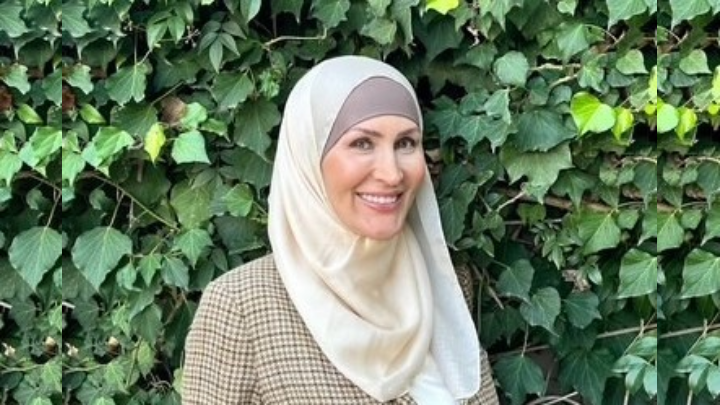The Dangers of Criminalising Criticism of Israel: Interview with Muslim Legal Network’s Dr Oz Susler

Universities Australia announced on 27 February that all of its 39 member universities nationwide have agreed to adopt a definition of antisemitism “that aligns closely with the International Holocaust Remembrance Alliance (IHRA) definition”, which has a controversial reputation as it conflates Zionism with the identity of Jewish people, while blocking criticism of Israel.
This development has resulted in shock and confusion at Australian universities, as over the last 16 months, the apartheid Israeli state has carried out a wholesale massacre against the Palestinians of Gaza, so, in the broader context, the new antisemitism definition is being progressed to stamp out criticism of Israel for the commission of the most serious crime of all: genocide.
The clear problem with this is that, despite the IHRA definition being officially adopted elsewhere, antisemitism is usually considered a form of religious and racial discrimination in this country, so it is akin to Islamophobia or racism against Arabs, and such forms of criticism have nothing to do with politics.
So, therefore, the terming of Israel as a perpetrator of mass atrocities against Palestinians, does not equate to the expression of the dislike of Jewish people due to their adherence to Judaism.
But not only is there a growing fear on Australian university campuses that illegitimate restrictions could be placed on freedom of thought and expression, but there is a growing concern that this interpretation of antisemitism might be officially taken up by government, at the behest of the Israel Lobby, and at its most extreme, could see conduct framed as antisemitic leading to deportation.
Sydney Criminal Lawyers spoke to La Trobe legal academic Dr Oz Susler, who is also the president of the Muslim Legal Network, to ascertain how the definition of antisemitism that blocks criticism of Israel will distort university life and output, along with her contention that thought should be given to the much more comprehensive definition of dehumanising material at universities instead.

Universities Australia has suggested that the nation’s universities will be adopting a new definition of antisemitism, which was developed by the Group of Eight top Australian universities, and it relies on the controversial antisemitism definition provided by the International Holocaust Remembrance Alliance.
The IHRA definition conflates certain criticisms of the Israeli state with prejudice towards Jewish people or antisemitism.
Issues around the definition of antisemitism have been front and centre of late due to the genocide that Israel has been perpetrating in Gaza, as people have been condemning others, especially protesters, for their political criticism of Israel via the misrepresentation of it as antisemitism.
The Universities Australia antisemitism definition describes the particular types of criticism of Israel that it considers warrant being classed as religious prejudice.
Dr Susler, you’re a former solicitor, as well as a current legal academic, so how do you consider this antisemitism definition is going to affect universities in terms of campus life and academic output? What could this propagate going forward?
Universities Australia is seeking a definition that will shield the state of Israel from public criticism.
I don’t believe sufficient consultation was held with stakeholders including academic staff, prior to this proposal. The adoption of the IHRA definition leaves gaps which are open to interpretation that lend themselves to being weaponised. This new definition will serve to exacerbate the environment of fear among staff and students and further shut down freedom of academic expression.
The fight against racism and discrimination must not be coopted to shield any state from legitimate scrutiny, particularly one engaged in documented human rights violations and abuses.
Developing these sorts of narrow definitions will result in gaps and a failure to protect all individuals from racism, bigotry and discrimination. This proposed definition equates antisemitism with calls for the elimination of the state of Israel, which is an explicitly political structure, and thereby, directly restricts critique of Israel as a political entity.
This will have a chilling effect on academic freedom in general, but in particular, upon the principles of open debate and intellectual inquiry. It will negatively affect our ability to teach and research across a broad range of disciplines.
This is a direct infringement on the academic right to challenge and question political systems, which is crucial to the role of academics and universities as spaces for critical thought and debate.
Academic institutions must remain spaces of open debate and rigorous discourse, free from political and economic interferences that stifle robust discourse and dissent.
Amnesty International has warned that the adoption of the extremely contested IHRA definition is a direct attack on fundamental freedoms, stifling freedom of speech, freedom of expression, freedom of assembly, academic debate and protest.
Similarly, the Jewish Council of Australia described the definition as dangerous and politicised and warned that it threatens academic freedom and will have a chilling effect on legitimate criticism of Israel and it risks institutionalising anti-Palestinian racism.
As you’ve noted, this definition is still at the proposal stage. So, there must be a lot of concern and confusion on campus regarding the potential adoption of it.
There is a lot of concern by academics at universities around Australia and they are running these concerns by their administrations. Academic staff both in Australia and abroad have been instructed to alter course contents due to a rising trend of restricting academic freedom.
What I would advocate for is to replace the proposed definition with one that is based on the definition of dehumanising material.
This is a definition that provides a much more comprehensive and clearer standard to protect all groups based on race, religion and ethnicity.
The dehumanising material definition is backed by Harvard, Oxford and Australian scholars, including atrocity prevention studies and hate crimes data. It is much more comprehensive.
Australian universities should be looking at a definition like this one, and not one that is going to shield criticism of abuses, diminish academic integrity and critical thought.
So, the dehumanisation material definition would stand in place of a separate prohibition against racism?
Correct, because the definition of dehumanising material encompasses more than just racism. It covers bigotry. It covers double standards and hypocrisy. It is much more comprehensive.
The problem with the IHRA definition is it’s really distorted and incredibly myopic. It really does threaten to have a chilling effect upon freedom of expression.
The third paragraph of the Universities Australia antisemitism definition states that Zionism is a core part of Jewish identity for most Jewish Australians, so therefore, criticism of Zionism is classed as antisemitism and hence, not permitted.
Zionism is the 18th century European political doctrine advocating for the creation of an Israeli state upon the lands of the Palestinians. This is settler colonialism.
What are the dangers of banning criticism of a doctrine that supports the theft of other people’s land via genocidal acts, and instead, misrepresenting it as prejudice against a people?
This proposal risks conflating the national political ideology of Zionism with Jewish identity.
By endorsing this definition, Universities Australia are effectively undermining the right of academic staff and students from discussing or advocating for decolonisation, self-determination and justice for Palestinians in academic studies or research. It effectively is suppressing academic discourse under the guise of moral rectitude. The effect of this is to erase the lived experiences and the legitimate demands of the Palestinian people.
It also makes an assumption that all Jewish people are Zionists, which is clearly not the case. It treats all Jewish people as a monolithic group, who all have the same political opinions. This is a gross oversimplification and such a binary view.
Academic institutions must remain spaces of open debate and rigorous discourse and free from the political and economic influence that stifles this dissent.
Moving beyond the tertiary campus, US congress passed a motion in late 2023 that served to establish that anti-Zionism and criticism of the Israeli state is antisemitic.
There are growing fears that a similar definition could be adopted by government in this country. Suggestions have been made that prominent Israel Lobby figures are pushing for this at present.
So, how could such a definition impact the entire nation of Australia? What sort of outcomes could result from a situation where the public is told to adhere to a faulty definition that a large sector of our society will readily understand is problematic?
This will shut down a significant degree of legitimate protest and public debate. It risks making our society oppressive and infringing our precious democratic rights including the freedom of expression and academic inquiry.
There are already proposals to change laws that if enacted, will further restrict our right to freedom of expression. This trend of introducing or amending legislation is another indication of increasing authoritarianism.
For example, I believe the Justice Legislation Amendment (Anti-Vilification and Social Cohesion) Bill of Victoria needs to have a public interest defence included to protect freedom of expression in this bill.
The combined effect of amendments to various legislation will further curtail people’s rights to freedom of expression and assembly.
The ability of Victorians to participate in protests, rallies and community gatherings is a crucial democratic right that must not be restricted. The capacity of the community to engage in protest is foundational to a healthy democracy.
In December last year, the Victorian government also announced plans to introduce a raft of changes following a series of violent and racist acts inflicted on Jewish and Muslim communities in Victoria, in particular following the attack on the Adass Israel Synagogue.
These include bans on protests near places of worship, bans on masks at protests, bans on carrying rope or glue during protests, and bans on displaying symbols of listed terrorist organisations, as well as making multicultural organisations sign a pledge to access government funding, which will potentially restrict their communication and advocacy.
These attacks on places of worship for example, are racist attacks and cannot be characterised as protests. To be clear, they are criminal offences. The proposals to amend legislation and create more bans is a kneejerk reaction in many cases, particularly during heightened tensions.
The politicians are not considering the far-reaching implications of these amendments, which risk threatening citizens’ democratic rights.
Passed in February, the Criminal Code Amendment (Hate Crimes) Bill 2025 saw a number of new offences inserted into the Criminal Code Act 1995 (Cth), along with a mandatory minimum sentencing regime that applies to certain hate crimes and terrorism offences.
What are your thoughts on the recently passed federal hate crimes bill?
I’m very alarmed by the government’s introduction of mandatory sentencing in response to certain hate crimes and a wide spectrum of terrorism offences.
The Muslim Legal Network and other civil rights organisations are equally concerned regarding the recent antisemitic and Islamophobic incidents in Australia. However, we also recognise that it is precisely during heightened tensions that we must maintain the rule of law and resist imposing measures that risk causing grave injustice.
The first casualty during times of escalated fear is usually the rule of law. To relinquish the rule of law, means we will lose our most important Australian values of democracy and freedom.
There is a danger with mandatory minimum sentences for particular hate crimes and terrorism offences. For example, let’s say a person is sentenced for publicly displaying a prohibited symbol during a political protest to a mandatory minimum sentence of 12 months incarceration.
The person’s personal circumstances are precluded from being taken into account under mandatory sentencing, which is more likely to have a disproportionate effect on vulnerable groups, such as student protestors and those from CALD backgrounds.
Once again, these laws have been introduced hastily and without adequate consultation.
Terrorism related offences now carry mandatory minimum sentences ranging from 3 years to 6 years. As a result of this bill, the courts will now be restricted from considering each charged person’s individual circumstances, therefore it will create a very blunt instrument and will fail to deliver just outcomes.
Lastly, Dr Susler, not only are these developments afoot, but those gathered at the recent Sky News Antisemitism Summit produced an action plan that they’d like to see the government implement.
Liberal leader Peter Dutton told those at the forum that if elected, he will change the law, so noncitizens can be deported over antisemitic behaviour, which will apply retrospectively to October 2023.
And as of last week, the Liberal opposition leader has raised the prospect of ministers being able to strip dual nationals of their citizenship.
So, broadly speaking, what sorts of issues does this most recent development around antisemitism pose?
It’s a serious threat to our freedom of expression if a person stands to lose their Australian citizenship for criticising the political ideology of Zionism or the conduct of the state of Israel. It’s disturbingly Orwellian in nature.
The risk is that the legislation will likely be open to interpretation therefore any criticism of Israel could amount to the offence of being ‘antisemitic’ with far reaching ramifications for the rights of individuals.
Currently, under existing laws, Australian citizenship can be lost if the person has committed a terrorism offence, and the court determines that the person has repudiated their allegiance to Australia.
Dutton would simply need to have the laws amended so that any offence deemed to be antisemitic would amount to a repudiation of a person’s allegiance to Australia, which would enable a person to be stripped of their citizenship and deported, possibly to a country they have no family in and can’t even speak the language of.
This is a very serious consequence for someone who is simply exercising their right to freedom of expression.







